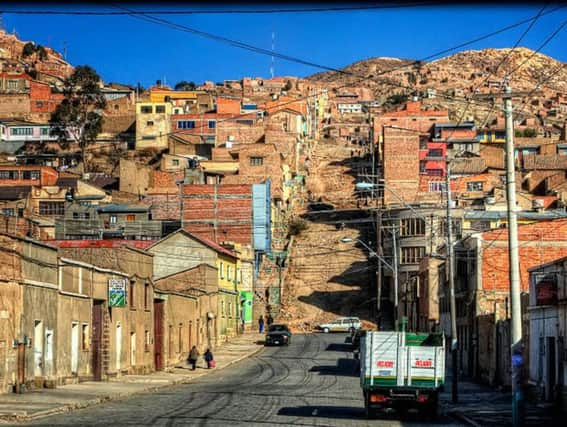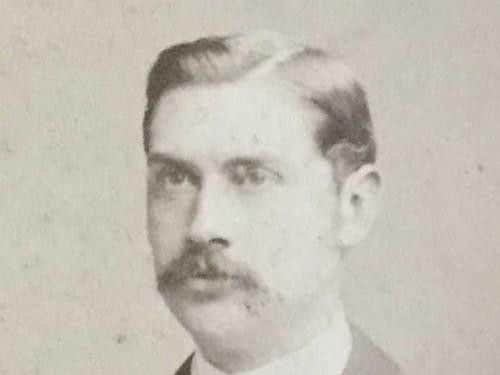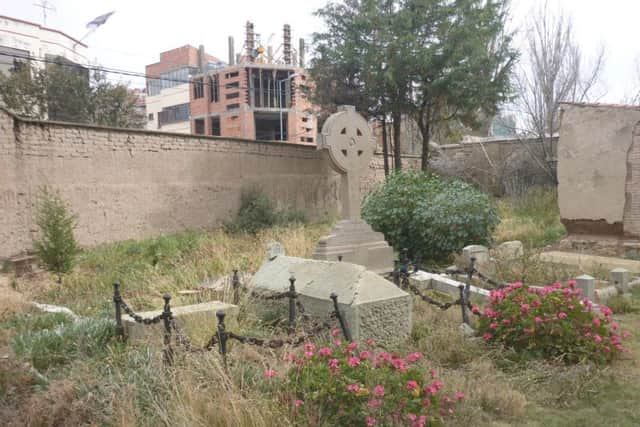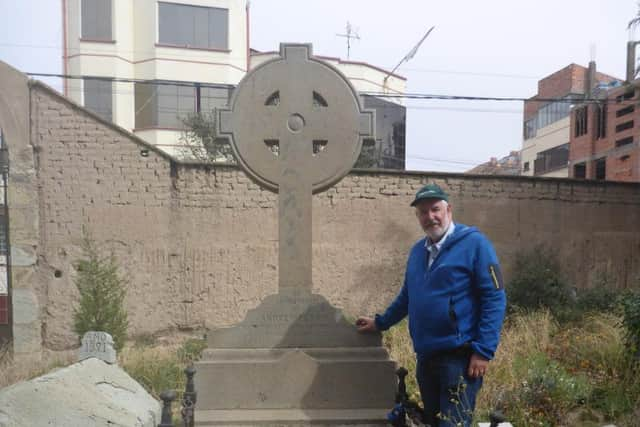Lost graves of Scots miners found in abandoned Bolivian cemetery


Dr. Stewart Redwood, a geologist originally from Stirlingshire but now of La Paz, discovered the graves in the windswept and treeless mining city of Oruro, which sits high on a desert plateau of the Bolivian Andes.
Here lies the graves of several Scots linked to Andrew Penny, from Birse, Aberdeenshire, who left Scotland in 1852 on a whaling boat bound for the southern ocean. He jumped ship at Arica in Peru - now Chile - and made his way to Boliva on foot.
Advertisement
Hide AdAdvertisement
Hide Ad

Mr Penny married a Bolivian woman, Anna Maria Galindo, and later bought a share in the San José mine in Oruro and spent seven years draining it of water. He eventually took over the entire business and became known as "The Silver King" given the vast fortune made by the operation with several of his family members also prospering from the precious metals found deep in the Andes.
In the graveyard is the burial spot of Mr Penny's nephew, also Andrew, originally from New Leeds in Aberdeenshire, which is marked by a Celtic Cross.
Mr Penny's adopted son, Mariano Mackenzie Penny, who was abandoned by his father, a miner from Perthshire, also lies here.


The grave of Mr Penny Snr's son-in-law, Andrew Kirk Philp, a mine manager originally from Lochgelly in Fife, can too be found.
Dr Redwood set about finding the graves given his long-standing interest in the Penny family story.
After several previous attempts, Dr. Redwood was finally given access to the padlocked cemetery in Oruro.
Dr Redwood said: “With the help of friends in Oruro, we were given the key to the padlock by the administrator, and let ourselves in as the church bells rang on a sunny Sunday morning.


"The foreigners’ graveyard is abandoned, overgrown with weeds and unkempt. Most of the adobe-built niches have collapsed exposing coffins, clothing, skulls and bones, and many of the plaques have been stolen and graves vandalised.
Advertisement
Hide AdAdvertisement
Hide Ad"However, I was pleased to find that the grave stones were in good condition."
Dr Redwood said the search for the gravestone of Andrew Penny Snr continues. He died suddenly in 1890 in town of Huanchaca - now a "ghost town" - with it presumed he was laid to rest somewhere there.
News of Mr Penny's death was widely reported at the time, with the Aberdeen's People's Journal noting that Mr Penny, inherited the "grit" of his father, a stonemason.
He worked at first as a gardener at Ballogie House near Aboyne before joining a couple of whaling voyages to Greenland.
After arriving in Bolivia, it was 30 years before Mr Penny returned home, with those who knew him presuming he was dead.
"He had been given up as dead and his friends and acquaintances did not recognise him - indeed they could scarcely believe that he was the man he had known," the report said.
Mr Penny was remembered for his generosity, and helped to fund the poor of his native parish as well as local institutions.
"He was called the Silver King but he steadily and carefully avoided ostentatious displays and evinced most happiness and enjoyment in the companionship of those he had known in his early days," the report added.
Advertisement
Hide AdAdvertisement
Hide AdAt the time of his death, he was preparing to return home to Aberdeenshire, where he had recently bought the Park House and Estate in Drumoak Parish for £48,000 - around £6.1m at today's value.
His tenants were preparing a big welcome home party, but instead received the news that their landlord and friend had died.
Dr. Redwood has a long connection with mining in Bolivia, having done the fieldwork for his doctorate in geology at the University of Aberdeen in the Bolivian Altiplano.
He said he was always fascinated by the story of the Aberdeenshire miners in Bolivia and has been researching it in recent years.
While the grave of Andrew Penny Senior has yet to be found, there is a lasting memorial to Andrew Penny in Oruro. The “Penny Home for Girls” orphanage was set up by his wife in his memory in 1892 and opened in 1900. It is still going strong today.
The historic links between the North East of Scotland and mining in Bolivia continue to this day with the University of Aberdeen’s backing the headquarters for the Bolivian Geological Society.
One of the founding members of the society, the late Charles ‘Scottie’ Bruce, hailed originally from Fetterangus in Aberdeenshire and after moving to Bolivia in 1960 to work as a miner went on to establish a scholarship scheme with the University.
Dr Redwood was one of the geologists who took part in the scholarship scheme.
